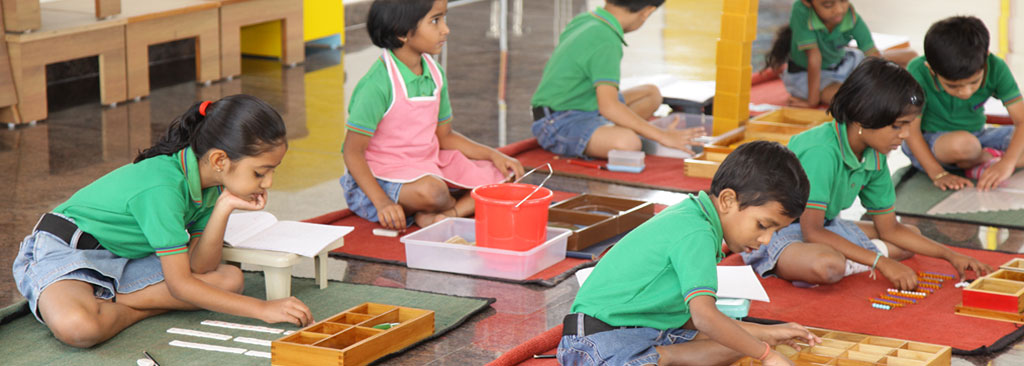
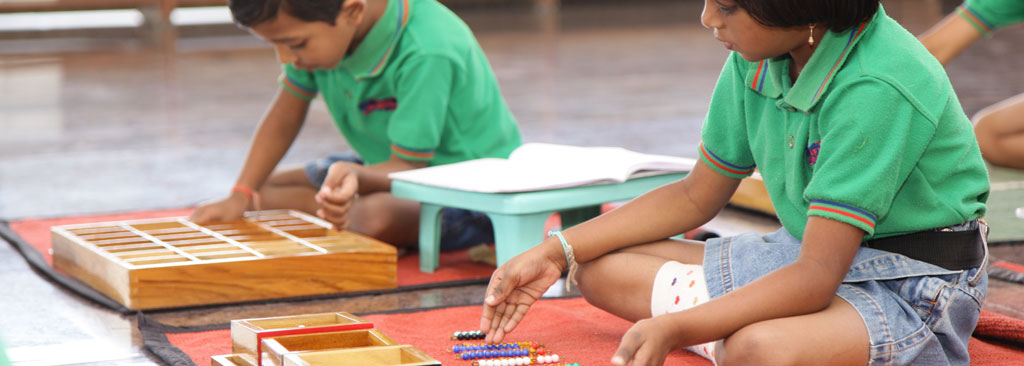
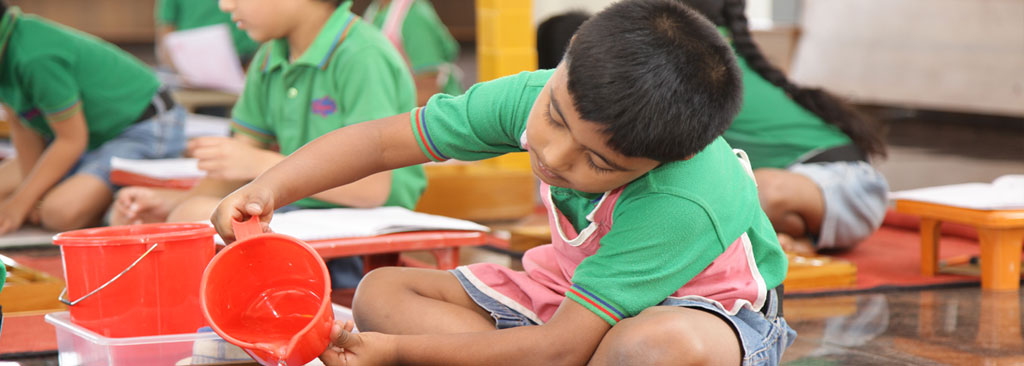
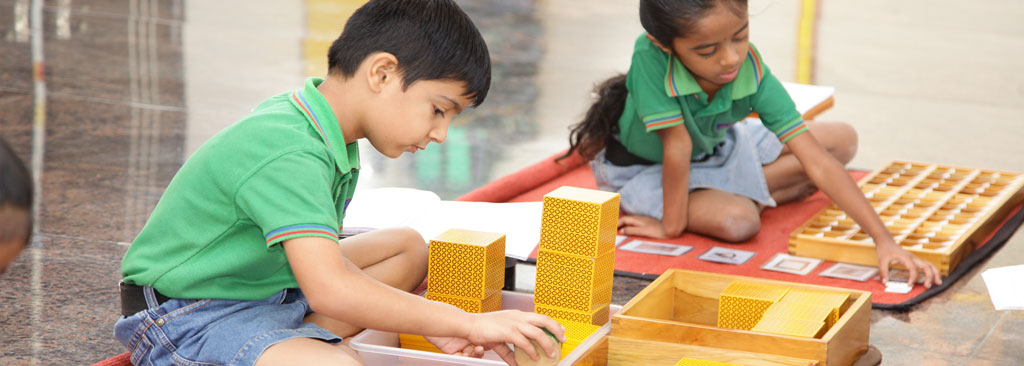
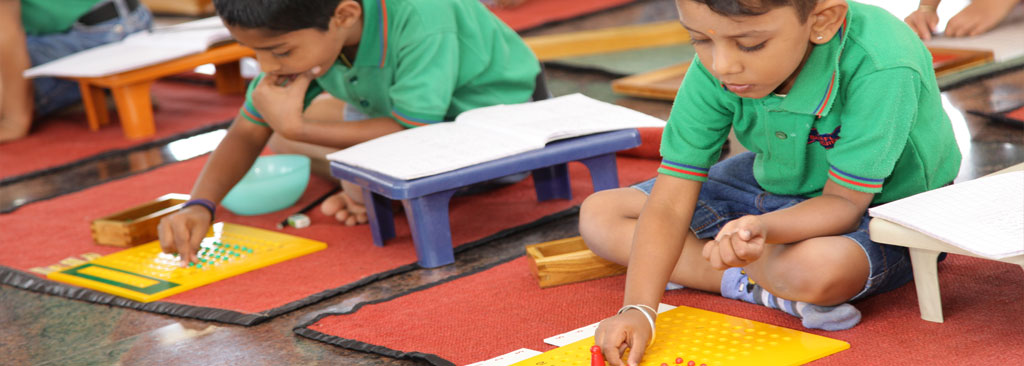
The main aim of prepared environment is to provide the children freedom to explore and learn about the world around them no matter what learning style they possess. This nurtures their innate desire to be independent in thinking and working.
One of the purposes of a prepared environment is to make it possible for children to become progressively more and more independent of adults. An orderly environment supports this development of independence. Order in the environment helps children build an order in their developing minds and it helps them use their time more efficiently. When there is order and consistency in the arrangement of the furnishings and materials, then children do not have to spend time and energy looking for things.
We provide children with environments ideally suited to each stage of development; this allows them to respond to the inner call of specific "sensitivities" and gives them the freedom to act in accordance with their innate human tendencies.
The child's needs in different stages of development are paramount and are met through a carefully prepared and ordered environment. These needs are based on what Montessori calls "Sensitive Periods", periods where children are naturally absorbed and acutely interested in certain aspects of their environment. Montessori designed classrooms with particular concrete materials that respond to these sensitive periods by sparking the child's interests and enabling them to learn effortlessly. Thus, if education is viewed as a method to fulfill the optimum potential of the child in every facet of his/her emerging personality, this "prepared environment" provides a secure and permanent foundation on which they base education.
The Montessori Method gives the child the opportunity to develop responsibility, and respect for themselves and others through work in the prepared environment leading to self-esteem and independence. The logical, sequential nature of the environment provides orderly structures which guide discovery: Theorems are discovered, not presented; spelling rules are derived through recognition of patterns, not merely memorized. Every aspect of the curriculum involves creative invention and careful, thoughtful analysis. In viewing learning outcomes at each Montessori level, it must be emphasized that why and how students arrive at what they know is just as important as what they know.
Our environment promotes individuality, independence, interdependence, awareness and consideration for the needs of other human beings, which leads to an appreciation of life.
Dr. Maria Montessori







